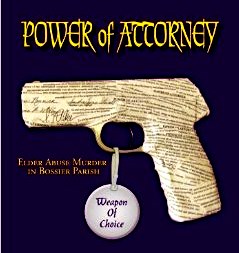
By way of background, Mr. Chudy was seriously injured, while a passenger, in a motor vehicle crash. The Chudys signed a contingency fee agreement with Shaw PLC (Personal Law Corporation), a company through which Mr. Shaw practised law. The agreement provided Shaw PLC was entitled to 30% of any damage award made.
A short time later, Shaw PLC stopped operation. Nevertheless Mr. Shaw continued to practise as a sole practitioner until becoming an associate with the Merchant Law Firm. Mr. Shaw took the Chudy file with him however, no new contract was signed with the Chudys. Days later, Mr. Shaw filed for bankruptcy. Mr. Shaw transferred his Shaw PLC shares to his Trustee in Bankruptcy, declaring their value as nil.
Following his bankruptcy, the B.C. Law Society refused to renew Mr. Shaw’s license and directed him to work only under the supervision of a practising lawyer.
Some months later Mr. Shaw, acting upsupervised, negotiated a binding settlement for the Chudys. Only later did the Merchant Group finally present a new contingency agreement to the Chudys i.e. once the Chudys were already entitled to their settlement monies.
In a dispute over legal fees, the trial judge ruled that at the time of the MVA action settlement, the only signed contract was the original Shaw LPC agreement. The judge however refused to enforce that contract ruling that Mr. Shaw’s subsequent inability to practise law had been a fundamental breach of that contract. In other words, the court found this was a breach of a condition which went to the very root of the contract and made the contract unenforceable.
The judge ruled the subsequent Merchant agreement was also unenforceable. Because the court action had already been settled when this new contract was signed, the Merchant Group gave nothing of value in return for the Chudys’ promise to gratuitously pay over 30% of their damage award. There was no consideration passing from the Merchant group and thus no enforceable agreement.
The judge also found that Mr. Shaw had misrepresented to the Chudys that they were legally obligated to sign the Merchant Agreement when they were not. He ruled that Mr. Shaw and the Merchant Group were in a conflict of interest with the Chudys and owed them a fiduciary duty (an equitable duty) to advise them that they had no obligation to sign the later fee agreement.
The Merchant Group and Mr. Shaw, having failed in their legal claims to enforce the fee contracts, sought to rely on the equitable doctrine of quantum meruit.
This doctrine is founded on the belief that no one should receive an unfair benefit. Thus, where one person knowingly receives a valuable benefit from another, even in the absence of an enforceable contract, the court may imply a promise to pay a reasonable amount for the labor and materials provided. Where the court recognizes that obligation, it makes a monetary award known as a quantum meruit award.
In this case the trial judge, in his discretion, refused to grant a quantum meruit award. He founded his decision on the equitable of principle of “clean hands” following the equitable maxim “He who seeks equity, must do equity”. The judge laid out several concerns with the lawyers’ conduct.
- The Chudys were not properly informed of the limitations on Mr. Shaw’s professional status—they said if they had known of the restrictions they would have sought another lawyer.
- Before the hearing, Mr. Shaw told the Chudys he had special permission from the Law Society to take them to mediation—that was untrue.
- Mr. Shaw, contravened his professional restrictions by taking the lead in negotiations without the required supervising lawyer attending the mediation.
- The court had found misrepresentation and breach of fiduciary duty as noted above.
- Permitting recovery by the Merchant Group would sanction the “duplicitous actions” of Mr. Shaw and the Merchant Group in obtaining the value of Shaw PLC free of the claims of the Shaw bankruptcy creditors.
Notably this trial decision was upheld by the Court of Appeal in a split decision—one of the three appeal justices would have referred it back for a new trial.




